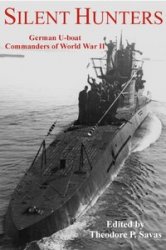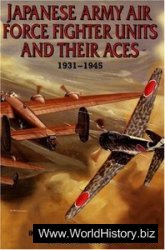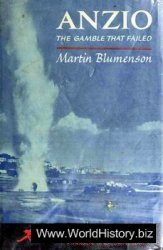WALES
When Pryderi was Lord of Dyfed, Bran the Blessed was King of the Island of Britain. He had a full sister, Branwen, who was one of the Three Great Ladies of this
Island. He also had a full brother, Manawydan, and two half-brothers. One was Nisien, who brought peace to contending armies and friendship to men, and the other was Efnisien, the most quarrelsome man in Britain.
One day, Bran was sitting with his brothers and nobles on the great rock of Harlech and they saw 13 ships sailing toward them from the south of Ireland. Bran asked his brother Manawydan to go and meet the ships to discover their purpose.
One of the ships drew ahead of the others and Manawydan and Nisien watched as a painted shield was lifted high above the ship’s deck, point uppermost, a token of peace. Manawydan lifted his shield in the same way.
The men on the ship came ashore in small boats, greeting Bran. “These, king, are the ships of Matholwch, King of Ireland. He has come in person to ask for Branwen, your sister, in marriage. Will you bid him land?”
Matholwch duly came ashore, greeted Bran, and there was a joyous gathering of the two hosts. The following day, it was agreed that Matholwch should marry Branwen and that the marriage would serve as a peace treaty between Britain and Ireland.
The marriage feast was to be at Aberffraw; Matholwch and his host set sail in their ships, and Bran and his host set off over land. The feast was held in the open air, as there was no house big enough to hold the godlike Bran, who was enormous.
While billets were being found for the horses and grooms, the quarrelsome brother, Efhisien, arrived. He was annoyed that he recognized neither grooms nor horses and asked what was happening. He was even more annoyed that Branwen had been given in marriage without his consent and swore revenge, maltreating both the horses and the grooms.
Word of this reached Matholwch, who was puzzled and made arrangements to set sail again for home. Bran in turn was perplexed by Matholwch’s discourtesy and sent word that Matholwch’s grievance was against his brother Efnisien, not against him. “Tell him I shall give him a sound horse for each horse spoiled, and for his injured pride I shall give him a staff of silver as thick as his finger and as tall as himself, and I shall give him a plate made of gold as broad as his face. If he is not content with this, then he should come to see me and my brother Nisien shall make peace between us on terms that he shall name. I will not have Matholwch return to Ireland in anger; I will not have sorrow brought on Branwen.”
Matholwch was persuaded to accept Bran’s friendly offer. He ordered his ships’ sails to be furled again and returned to Bran’s court.
Matholwch and Bran fell into conversation and Bran offered to give something else in reparation: “Tomorrow when the counting of the new horses is done, I will give you the Cauldron of Rebirth. If one of your men is killed, cast him into the cauldron and the next day he will live again. He will be as good as new, except that he will have lost the power of speech.”
After that, Matholwch was merry enough and Bran was as good as his word. He gave Matholwch the Cauldron of Rebirth, which all knew was one of the chief treasures ever found in the island of Britain.
Matholwch set sail for Ireland with his 13 ships. On the swiftest of them sat Branwen on a throne of gold and ivory. Horns and trumpets sounded from ship to shore and back again, and Bran watched his sister go with tears in his eyes. Manawydan and Nisien told him he should be happy on this wedding day, but he was filled with foreboding.
For a year, Branwen lived in honor and friendship in Ireland. But then the insult to Matholwch was remembered by some of his men, who taunted him with cowardice. “A king’s shame is the shame of his warriors,” they said.
The king was persuaded to banish Branwen from his court; she was made to work in the kitchens. Matholwch knew how angry Bran would be at this, and ordered every person visiting from Wales to be imprisoned, so that Bran should never know what had become of his sister. So it continued for three years.
Branwen wrote a letter describing her misfortunes and fixed it to a starling’s wing. The starling flew across the sea to the court of Bran and alighted on his shoulder. It ruffled its feathers so that Bran could see the letter. He unfastened it and read it. He was so grateful to the starling that he gave it a bowl for food and a bowl for water and a perch for resting—in every palace in his lands.
Bran assembled his council and read aloud the letter, and they decided to sail for Ireland. Seven knights were left behind to guard the kingdom and Bran’s son Cradawg was their leader.
There was no ship large enough for Bran, so he crossed the sea by wading, carrying his minstrels on his back. Matholwch’s swineherds saw this strange mountain approaching through the waves and a forest growing out of the sea and tried to describe it to Matholwch. He asked Branwen to explain what the swineherds had seen and she understood: the forest was the many masts of Bran’s fleet and the mountain was Bran himself.
Matholwch and his men withdrew to the west, beyond the Shannon River, and broke down the bridge behind them. There were stones on the riverbed that stopped ships sailing along it.
When he reached the Shannon, Bran offered the solution: “He who is chief, let him be the bridge. I myself will be a bridge.” He lay across the river and his army passed over him.
Matholwch sent messengers with friendly greetings, offering the kingdom of Ireland to Gwern, Branwen’s son, as reparation for the wrong done to Branwen.
Bran replied, “You need not tell your lord that I am other than angry with him.”
Matholwch took advice and set about building a house large enough to accommodate Bran, since that feat had never been achieved. The plan was to offer Bran homage and the kingship and make peace.
But the Irish turned the house into a trap. A bag was hung on either side of every pillar in the house, and in every bag an armed man was concealed.
Efnisien came and inspected the house, hoping to find fault with it. He asked what was in one of the bags. A nervous Irishman answered, “Flour, sir.”
“Then this will do no harm,” said Efnisien, feeling around the bag until he found a head. He squeezed the head until he felt his fingers break the skull. Then he went on to the next bag and did the same. And so it went on until there was only one bag left. This time Efnisien felt a helmet, but he would not leave it until this last man too was dead.
Then the two hosts arrived and there was peace between them. The only discordant voice was Efnisien’s. “Why does my sister’s son, the boy Gwern, not come to me? Am I less in his eyes than my brothers? Is he too proud, now that he is King of Ireland?”
Bran urged the boy to go to his uncle. But when he did, Efnisien seized him and hurled him into the flaming fire.
Branwen would have leaped in too, to save her son, but Bran’s brothers held her back. Every man in the house stood up and drew his sword and a great battle broke out.
The Irish kindled a fire beneath the Cauldron of Rebirth. As their men fell, they flung their corpses into the cauldron and the next day they stepped out again, renewed.
Efnisien saw that there was no room in the cauldron for his own countrymen and was ashamed that he had brought this disaster on them. He crept in amongst the Irish corpses, lay still, and soon he too was flung into the cauldron. Once inside, he stretched himself out and burst the cauldron into four pieces; in doing this, he burst his own heart too. But for this, no British men would have survived.
Bran was wounded with a poisoned spear. Knowing he would die, he ordered Manawydan to cut off his head, take it to the White Mount in London, and bury it there with the face toward France.
Bran warned that it would take a long time to reach London. The company was to go first to Harlech and then to dwell in happiness at Grassholm in Pembrokeshire for 80 years, until the door toward Aber Henfelen was opened. Once that door was opened, they must stay no longer, but make for London to bury the uncorrupted head.
Manawydan cut off his brother’s head and the seven British survivors of the battle returned to Britain, taking Branwen and the head of Bran with them. Branwen was overwhelmed with sadness at the devastation of the two islands—all, she thought, because of her. Her heart broke and she was buried on the bank of a river.
As the seven men journeyed, they heard the news that Caswallawn, son of Beli, had fallen on Cradawg, the son of Bran, and killed him and six other men while wearing a magic cloak that made him invisible. He had conquered the Island of the Mighty and was now King of Britain.
The company of Bran spent seven years at Harlech. While they were there, three birds of Rhiannon visited them and sang a song that was sweeter than any other music they had ever heard.
Then they went to Grassholm, where they found a royal hall. Two of its doors stood wide open, but the third stood closed. There they stayed for 80 years and the head was pleasant company all this time. The company became known as the Assembly of the Wondrous Head.
One day Heilyn, son of Gwyn, decided the time had come to open the third door. Through it they saw Cornwall and Aber Henfelen. Then they became conscious of every loss they had sustained and felt each as keenly as at the first moment. Then they knew no rest. They had to set off for the White Mount and bury the head there.
That was one of the Three Happy Concealments of the Island. It would be one of the Three Unhappy Disclosures when it was disclosed, but while the head remained concealed, no plague could cross the sea to Britain.






 World History
World History









